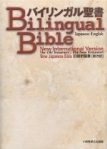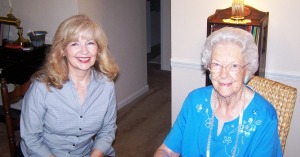 I visited a friend who lives in one of the housing districts of Birmingham this week. She is disabled, has four small children, no way to work, few people to turn to, and even fewer who care enough to get involved. As we visited about solutions, one reality we discussed is the unwillingness of people to come into the public housing districts. Even many who claim Christ are afraid to cross the barrier of poverty. This realization has reminded me of a few of the barriers that Jesus crossed. No doubt you can think of many more His example has taught us to overcome.
I visited a friend who lives in one of the housing districts of Birmingham this week. She is disabled, has four small children, no way to work, few people to turn to, and even fewer who care enough to get involved. As we visited about solutions, one reality we discussed is the unwillingness of people to come into the public housing districts. Even many who claim Christ are afraid to cross the barrier of poverty. This realization has reminded me of a few of the barriers that Jesus crossed. No doubt you can think of many more His example has taught us to overcome.
What People Think
Jesus acted out of His desire to please God rather than people. Jesus didn’t hesitate to accept the gift of worship from a woman known to the Pharisees as “a sinner.” She bathed Jesus’ feet with her tears and wiped his feet with her hair. In gratitude she kissed and anointed his feet with ointment. When Jesus saw the abuse of the poor in the temple, He ran the “robbers” out, knowing He would make enemies. Scripture tells us that this event contributed to the desire of the chief priests and scribes to kill Him, yet Jesus refused to let the reaction of others keep Him from reaching out to all who needed compassion and hope.
What People Consider Unclean
Jesus knew a woman had touched him. Her desperation gave her courage to touch the bottom of his cloak, hoping that her touch would bring healing from the sickness that had plagued her for years. When Jesus turned and addressed her, she fell down before Him with fear and trembling, expecting the same rejection she had experienced from others. But Jesus responded to her need with loving attention. He spoke to her, affirmed her faith, and rewarded her with complete wholeness.
The “unclean” in our American sphere are often the elderly, the physically and mentally challenged, the sick, and the poor. City of Joy tells the story of people who dared to reach across barriers to provide help and hope in the City of Joy, a slum on the edge of Calcutta. When their ministry extended to lepers, others in the community became violent because of their fear. Lepers had been carefully segregated from the rest of the community, and when they tried to enter into society, they were persecuted or killed. Those who would dare to embrace, or invite them into their homes and lives, experienced the same treatment. The City of Joy illustrates human response to the unclean. Jesus illustrates God’s response to the unclean.
What People Have Devalued
Jesus lifted up those who were devalued by offering them His friendship. He invited women, Samaritans, Gentiles, thieves, centurions, and tax collectors status as children of God. In a time when women were often been viewed as property, the Lord of Lords counted women among His closest friends. Jesus traveled through Samaria to find one woman hungering for living water. He found a tax collector in a tree, forgave him, and visited in his home. The devalued gained new status through the life, death, and resurrection of Jesus.
Today we may receive an invitation to go with Jesus into places that call us to rely on Him for love, compassion, grace, courage, and strength. But can you think of a finer way to spend a day than walking with our Savior, wherever He may lead? Leaving our comfort zone to follow Jesus is not only one of life’s greatest blessings but is our expected way to live.
Then those sheep are going to say, “Master, what are you talking about? When did we ever see you hungry and feed you, thirsty and give you a drink? And when did we ever see you sick or in prison and come to you?” Then the King will say, “I’m telling the solemn truth: Whenever you did one of these things to someone overlooked or ignored, that was me—you did it to me.” Matthew 25:37-40 (MSG)
 New Hope Publishers partners with authors who cross barriers of poverty, justice, prejudice, imprisonment, disability, and more.
New Hope Publishers partners with authors who cross barriers of poverty, justice, prejudice, imprisonment, disability, and more.















 New Hope Publishers partners with authors who cross barriers of poverty, justice, prejudice, imprisonment, disability, and more.
New Hope Publishers partners with authors who cross barriers of poverty, justice, prejudice, imprisonment, disability, and more.
